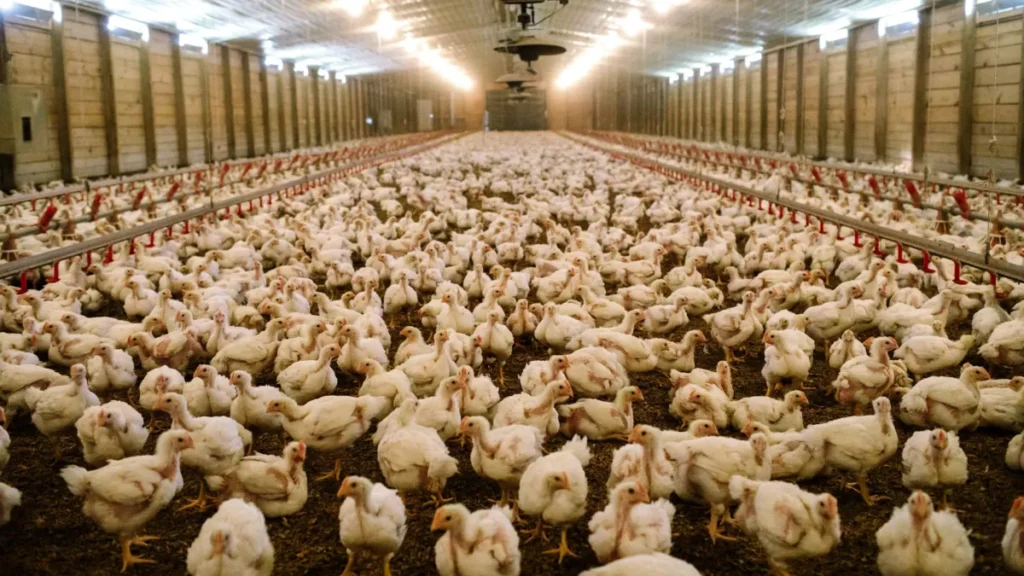Why UTIs Are Rising Fast: A Surprising Link to Your Refrigerator

Urinary tract infections (UTIs) are rising fast, becoming increasingly common and troubling. Over the past few decades, UTI cases have surged dramatically. Between 1990 and 2019, the global burden of UTIs grew by over 68%. Even more concerning is that these infections are not only becoming more prevalent but are also developing resistance to the antibiotics traditionally used to treat them. Surprisingly, a significant contributor to this crisis might be lurking in your refrigerator: the overuse of antibiotics in commercial agriculture.
UTIs Are Rising Fast – The UTI Epidemic and Its Serious Complications
UTIs are infections that impact the urinary tract, including the bladder, kidneys, ureters, and urethra. While bladder infections are often uncomfortable, they are usually not life-threatening. However, when these infections spread to the kidneys or bloodstream, they can become severe. Complications from serious UTIs can include blood poisoning, sepsis, kidney damage, or even kidney failure.
One reason UTIs are rising fast is the aging global population, as older adults are more susceptible to these infections. Dr. Comiter, a microbiologist and Chief Medical Officer at the Antibiotic Resistance Action Center at George Washington University’s Milken Institute School of Public Health, notes that UTIs are becoming more common among seniors, contributing to the overall increase in cases.
UTIs Are Rising Fast – The Hidden Link Between UTIs and Your Refrigerator
The connection between UTIs and antibiotics might not be immediately obvious, but it’s crucial. The overuse of antibiotics in commercial agriculture plays a major role in the growing problem of antibiotic resistance. Antibiotics are frequently administered to livestock to promote growth and prevent disease. Unfortunately, this practice leads to the development of antibiotic-resistant bacteria, which can then make their way into your refrigerator through the food supply.
These resistant bacteria are more challenging to treat with conventional antibiotics, making urinary tract infections and other infections harder to manage. The overuse of antibiotics in agriculture not only impacts animal health but also poses a serious threat to human health by creating a reservoir of resistant bacteria.
Addressing the Growing UTI Crisis
To combat the escalating issue of UTIs and antibiotic resistance, several critical measures must be taken:
- Reducing Antibiotic Use in Agriculture: Implement stricter regulations on antibiotic use in livestock to curb the development of resistant bacteria. This includes reducing the use of antibiotics for growth promotion and ensuring they are only used when necessary to treat disease.
- Promoting Responsible Antibiotic Use in Healthcare: It’s essential to use antibiotics wisely. By prescribing antibiotics only when necessary and ensuring the full course of treatment is completed, we can help prevent the development of resistance.
- Enhancing Hygiene Practices: Good personal hygiene and sanitation can significantly reduce the risk of UTIs. For instance, maintaining clean conditions when preparing and storing food can minimize the risk of bacterial contamination.
- Improving UTI Prevention and Treatment: Developing new antibiotics and alternative treatments can address resistance issues. Increasing awareness of UTI prevention and early intervention can also improve health outcomes.
Conclusion
The rise in UTIs and the growing challenge of antibiotic resistance are intertwined issues with complex causes. The overuse of antibiotics in commercial agriculture is a significant factor, underscoring the need for more responsible practices in both agriculture and healthcare. By addressing these issues comprehensively, we can work to reduce the prevalence of UTIs and combat the threat of antibiotic resistance, ultimately protecting public health.